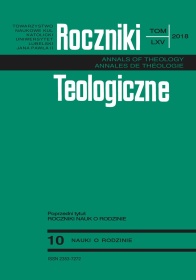The Dynamics of Relations between Ideal and Real Self of Primary School Children and Adolescents in the Context of their Personal Efficiency
Abstract
The article analyzes the research of the real and ideal self-images of pupils having different levels of personal effectiveness at the time of their transition from primary school age to adolescence. There are five category groups with which pupils describe the “successful pupil” image: generalized characteristics; acting and behavioural characteristics; personality traits (this category can be divided into two subgroups: 1) a person as a learning agent, the treats important for learning activity implementation; 2) a person's traits characterizing him/her as a human being); relationships with other people, other characteristics. The ideal self-image peculiarities are determined and compared, in dynamics, with real self-images of 3rd-6th grade pupils depending on their personal effectiveness. The research results give grounds to assert that the self-knowledge of primary schoolchildren has the form of self-perception and self-observation that are basis for creation of ideas about themselves; such ideas consist mostly of single images in specific situations. In contrast, at the beginning of adolescence, self-study and self-reflection become very important, which is a prerequisite for holistic, generalized self-image formation.
References
Janoff-Bulman R., Timko Ch. Coping with traumatic events: the role of denial in light of people’s assumptive worlds. In: Coping with negative life events: clinical and social psychological perspectives. Ed. C.R. Snyder, C.E. Ford. N.Y., L.: Plenum Press, 1987.
Боришевський М.Й. “Самосвідомість як фактор психічного розвитку особистості.” Психологія і суспільство? (2009), 4: 119-126. [Borishevs'kiy M.Y., “Samosvіdomіst' yak faktor psikhіchnogo rozvytku osobystostі.” Psykhologіya і suspіl'sto (2009), 4: 119-126].
Виногородський А.М. Розвиток особистісної рефлексії підлітків (на матеріалі сприйняття музики): автореф. дис. канд. психол. наук. Київ, 1999. [A.M. Vinogorods'kiy. Rozvytok osobistіsnoyi refleksіyi pіdlіtkіv (na materіalі spryinyattya muzyky). Kyiv, 1999].
Завацька Н.Є. Психологія соціальної реадаптації осіб зрілого віку. Луганськ: вид-во СНУ ім. В. Даля, 2009. [N.Y. Zavats'ka. Psykhologіya sotsіal'noiyi readaptatsіyi osіb zrіlogo vіku. Lugans'k:vid-vo SNU іm. V. Dalya, 2009].
Краєва О.А. “Становлення рефлексивної свідомості на етапі подолання підлітком кризи ідентичності.” Проблеми сучасної психології? (2011), 11: 382-392 [O.A. Krayeva. “Stanovlennya refleksyvnoyi svіdomostі na etapі podolannya pіdlіtkom kryzy іdentichnostі.” Problemy suchasnoyi psikhologіyi? (2011), 11: 382-392].
Свіденська Г.М. Психологічні особливості розвитку самосвідомості особистості в період підліткової кризи: автореф. дис. канд. психол. наук. Київ, 2008 [G.M. Svіdens'ka. Psykhologіchnі osoblyvostі rozvytku samosvіdomostі osobystostі v perіod pіdlіtkovoyi kryzy. Kyiiv, 2008].
Турбан В.В.: Становлення етичної свідомості в онтогенез: автореф. дис. докт. психол. наук. Київ, 2013 [V.V. Turban. Stanovlennya etychnoyi svіdomostі v ontogenezі. Kyiv, 2013].
Чеснокова И.И. Проблема самосознания в психологии. Москва: Наука, 1977 [I.I. Chesnokova. Problema samosoznaniya v psikhologii. Moskva: Nauka, 1977].
Copyright (c) 2018 Roczniki Teologiczne

This work is licensed under a Creative Commons Attribution-NonCommercial-NoDerivatives 4.0 International License.





